Joint statement: EU Court of Justice strengthens trans rights by calling for the automatic recognition in birth certificates
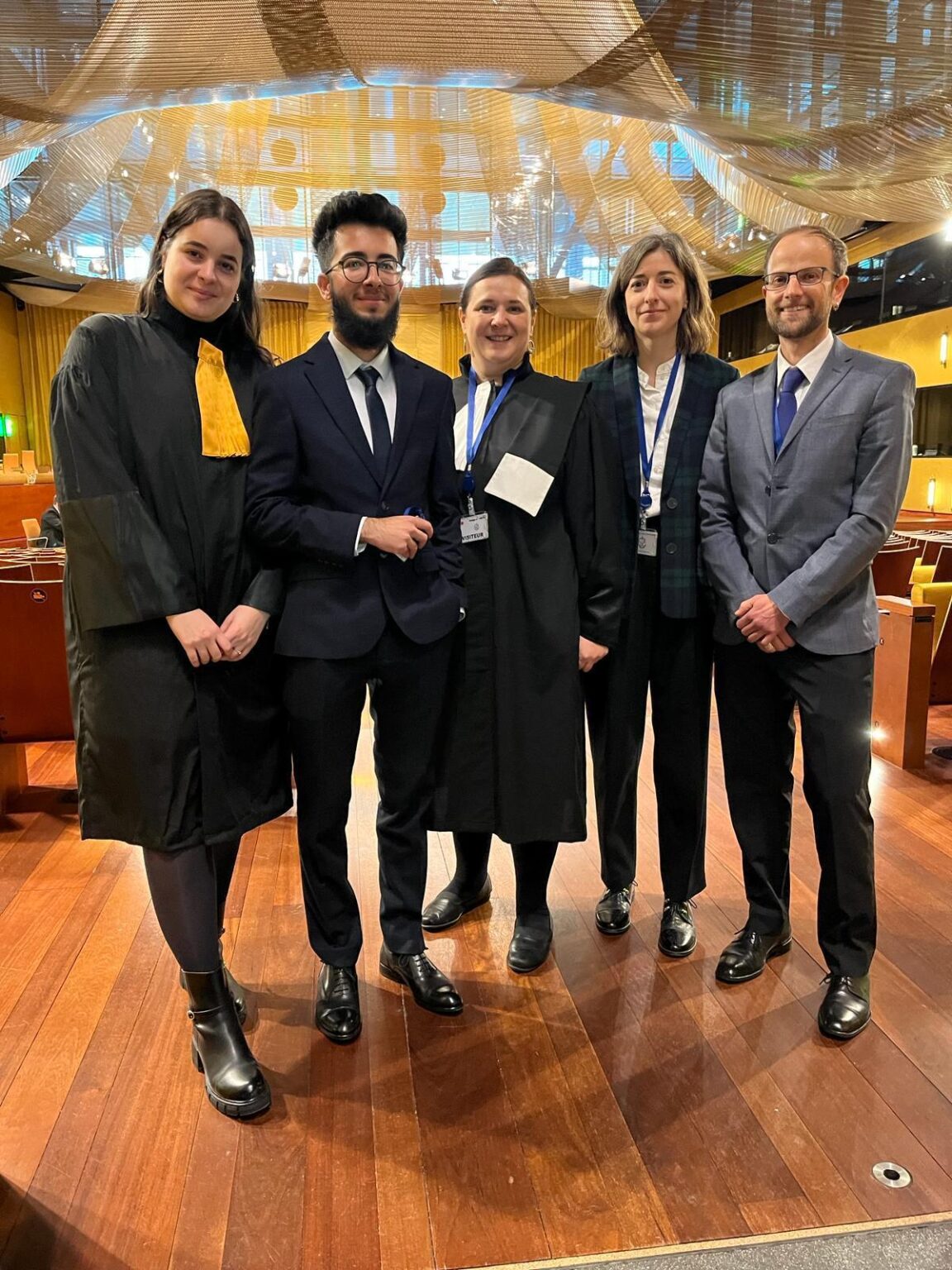
ACCEPT, TGEU and ILGA-Europe welcome today’s decision of the Court of Justice of the EU (CJEU) said that the refusal of an EU Member State to recognise changes of forename and gender acquired in another Member State is contrary to the rights of EU citizens.
The case C-4/23 Mirin concerns Arian Mirzarafie-Ahi, a Romanian trans man, with dual Romanian-British citizenship. Arian began the legal process to change his legal gender and name in 2017 and was granted a gender recognition certificate by UK authorities in 2020. At that time, the UK was in the Brexit transition period and still treated as a Member State of the EU. Subsequently, Romania refused to register the name and legal gender recognition of the applicant obtained in the UK and demanded that he go through Romania’s judicial legal gender recognition procedure. However, the European Court of Human Rights had already found that Romania does not have a procedure for change of name and gender marker that satisfies the standards of the European Convention of Human Rights (ECHR) of being quick, transparent and accessible.
The Romanian court asked the EU’s top court to clarify whether EU law required Romania to recognise another Member State’s decision acknowledging the name and gender marker of the applicant or if it could enforce its own procedures for legal gender recognition. In other areas of law, EU Member States commonly recognise each other’s decisions without further procedures. As such, this case marks a pivotal moment in addressing the mutual recognition of legal gender recognition decisions across EU Member States.
The CJEU Decision
The CJEU ruled in favour of Arian, stating that Romania must recognise the legal gender recognition granted in the UK. The Court emphasised that the refusal to acknowledge changes of forename and gender acquired in another Member State is contrary to the fundamental rights of EU citizens, particularly the principles of free movement and non-discrimination. The Court highlighted that mutual recognition of legal decisions among Member States is essential for upholding the rights of individuals within the EU, and that personal identity, including gender, is a fundamental element of one’s identity, protected under Article 7 of the Charter of Fundamental Rights and Article 8 of the European Convention on Human Rights. This landmark ruling reinforces the obligation of Member States to respect and recognise the legal gender identity of individuals as granted by other EU countries.
Impact
The importance of this judgement extends beyond the applicant’s individual circumstance, and underscores the broader issue faced by trans people whose legal gender recognition in one Member State is not acknowledged elsewhere in the EU, preventing them to travel freely, live, work or study across the EU, or even to vote, as any other citizen is able to. The judgement confirms the principle that rights legally obtained in one Member State must remain valid throughout the EU.
Reactions
According to Arian’s legal counsel, human rights lawyer Iustina Ionescu: “Today’s verdict has shown us that trans people are equal citizens of the European Union. When you have rebuilt a life in another part of the European Union because you are not welcome in your own country, it is normal to ask to be treated with dignity when interacting with the authorities in your home country. The fact that today the Court ruled on the mutual recognition of LGR decisions, no matter how different the procedures are in the Member States, should determine Romanian authorities to also adopt a fast, transparent and accessible national procedure, as requested by existing ECHR jurisprudence.”
TGEU Expert Advisor, Richard Köhler, said: “The CJEU’s ruling in the Mirin case is a monumental victory for trans people in Europe! Arian was forced to navigate a legal nightmare, facing the prospect of conflicting passports and demands for sterilisation to match his legal gender on Romanian and UK documents. Member States must recognise each other’s decisions—this is about equality and dignity. Romania, it’s time to act: Arian deserves his passport now, and the country needs a legal framework for recognising foreign gender identities.”
ILGA-Europe’s Senior Strategic Litigation, Marie-Hélène Ludwig added: “Today’s ruling confirms that without mutual recognition of legal gender recognition from one Member State to another, the right to freedom of movement and residence is not guaranteed for trans people in the EU. It is a great victory that shows the power of strategic litigation in the EU. This judgement will have an immensely positive impact, increasing legal protection for all trans people in the EU, all the more as certain EU countries like Romania still do not provide a legal framework for legal gender recognition conforming with European Court of Human Rights’ standards.”
Romanian NGO ACCEPT is a plaintiff in the case alongside Arian. TGEU and ILGA-Europe supported ACCEPT throughout the case, and joined Arian’s legal team at the Oral Hearing before the CJEU in January 2024.
Bulgaria’s Supreme Court Rejects Baby Sara’s Bulgarian Citizenship

The application for a Bulgarian birth certificate for a child of two mothers, one of whom is a Bulgarian citizen, has been rejected by the country’s Supreme Administrative Court, despite an opposite ruling from the court of justice of the European union.
Arguing that Baby Sara is not a Bulgarian citizen, the country’s Supreme Administrative Court (SAC) said that their decision not to grant a birth certificate to the child of two mothers is final and cannot be appealed.
The case ‘Stolichna obshtina, rayon Pancharevo’ arose at the Court of Justice of the European Union (CJEU) when a same-sex couple were refused a birth certificate in Bulgaria for their infant daughter, who was born in Spain. The Bulgarian authorities asserted that the couple, one of whom is Bulgarian, could not be registered as parents on the child’s birth certificate, leaving the family in legal limbo, and Baby Sara stateless.
In December 2021, the CJEU ruled that it is contrary to the fundamental rights guaranteed by Articles 7 and 24 of the Charter for Baby Sara to be deprived of the relationship with one of her parents when exercising her right of free movement or for her exercise of that right to be made impossible or excessively difficult on the ground that her parents are of the same sex.
The ruling effectively said that if one EU country recognises a child’s parental relationship, then all EU countries should do the same to guarantee the child its freedom of movement across the region, a right enjoyed by all EU citizens.
After the CJEU judgment, the Bulgarian authorities were obliged to recognise baby Sara. In May, a District Court (SES) in the country ordered city hall authorities in the capital city of Sofia to issue a birth certificate to Baby Sara.
However, the SAC overturned this decision, and refused to recognise the child’s Bulgarian citizenship.
Describing the judgement as a “blow” to Bulgaria’s LGBTI community, the organisation Deystvie, who litigated with Baby Sara’s parents, said it “will not stop us”.
“Our struggle is just beginning, and we know we are right. The EU’s court is with us, and this was confirmed by the SES’s decision last May.”
The 5 largest attacks on the fundamental rights of LGBTI people in the EU last year

In our submission to the European Commission’s annual Rule of Law report, we’ve identified key trends in the systematic attacks on the rights of LGBTI people across EU member states, and what can be done to counteract them.
Do you know about the EU’s Rule of Law mechanism? It can be used to ensure EU institutions react strongly against LGBTI rights violations across its member states. In the EU, rule of law means that all members of a society, including governments and members of parliaments, are equally subject to the law, under the control of independent and impartial courts.
The rule of law is important because it has a direct impact on the life of every citizen of the EU, and it ensures that laws protecting fundamental rights and democracy are respected by everyone, and can be enjoyed by everyone. It is a fundamental value upon which the EU is based.
Over the past few years it has become increasingly clear that many government-led violations of LGBTI rights in EU member states, go hand-in-hand with an undermining of the rule of law. In ILGA-Europe’s submission to this year’s EU Rule of Law Report, we’ve reported on the systematic attacks on the fundamental rights of LGBTI people across the EU, which have been enabled by the weakening of rule of law and democratic structures in several member states.
ILGA-Europe, with the input of various national-level LGBTI organisations, has submitted written input to inform the 2023 annual report, in order to ensure the violations of LGBTI rights linked to rule of law deterioration are recognised by EU institutions, and are addressed in their follow-up with member states. Here are the trends which we have highlighted to the EC:
Anti-LGBTI bias
In countries where the freedom of the judiciary is weakened, we have been witnessing political interference or bias in court cases related to LGBTI rights. For example, in Poland, the Ministry of Justice uses its powers to repeatedly appeal verdicts that were in favour of LGBTI defendants.
Also, in countries where media freedom is under attack, we are seeing more prevalence of anti-LGBTI bias, smear campaigns and even censorship of LGBTI content.
Harassment and intimidation of LGBTI human rights defenders
Across the EU, hate speech by politicians was a serious issue during 2022, creating an unsafe environment for LGBTI human rights defenders and often related to a rise in hate crime and hate speech against LGBTI people more broadly. LGBTI human rights defenders are still targeted by strategic litigation against public participation (SLAPP) cases, which aim to intimidate activists and journalists to prevent them publishing information about attacks on LGBTI rights. In addition, we saw in Poland that the prosecutor’s office used tactics to intimidate not only LGBTI people ahead of court cases but also judges presiding over cases related to LGBTI rights.
Anti-LGBTI legislation
Legislation aimed at rolling back the rights of LGBTI people continued to be tabled in 2022. The most well-known example of such legislation is the anti-paedophilia legislation adopted by Hungary in June 2021, which includes provisions which ban the “portrayal and the promotion of gender identity different from sex at birth, the change of sex and homosexuality” for persons under 18, and applies these to a number of regulations related to child protection, family, education, media and advertisement.
The European Commission started infringement proceedings against Hungary due to this law in July 2021, taking it to the Court of Justice of the European Union (CJEU) in July 2022. A similar law has since been tabled in Slovakia and Romania, while Poland has drafted a number of laws restricting rights of LGBTI people and currently in Bulgaria draft legislation aims to restrict the functioning of civil society in general.
Judgments are not implemented
Judgments of the Court of Justice of the EU (CJEU) or the European Court of Human Rights (ECtHR) continued to not be implemented last year. The most notable of these is the Coman case from 2018, on freedom of movement for same-sex spouses. Due to its non-implementation in Romania, the country where the case started, it has been taken to the ECtHR. An official complaint was also submitted to the European Commission, with a similar case.
Hate crimes are not investigated
Hate crimes against LGBTI people often are still not sufficiently investigated. A number of EU countries still do not have hate crime legislation with sexual orientation, gender identity or sex characteristics as aggravating grounds. In some countries which do have such legal protection, it is often not implemented properly by police, prosecutors or even Ombudspersons.
So, what can be done?
The EU has a number of tools at its disposal to ensure the respect of the rule of law in all EU countries. The European Commission (EC), the executive arm of the EU, is responsible for guaranteeing the respect of rule of law.
The EU can take specific steps against violations of LGBTI rights in member states, that is if they go against EU legislation and/or if they are rule of law violations. Instruments the EC can use in such cases include so-called infringement procedures, as we see against Hungary and Poland at the moment, triggering Article 7 of the Treaty of the EU, to suspend certain rights from a member state, as well as cuts in EU funding based on rule of law violations.
The EU annual rule of law report highlights breaches of EU and national law, including erosion of democratic standards. Based on this report, the EU institutions talk with EU countries, as well as national parliaments, civil society and other stakeholders in order to address concerns and avoid deterioration.
We hope that our remarks are heard and that the EC will integrate them in its annual Rule of Law Report. LGBTI rights are human rights and must be protected the same way rule of law should be respected in every EU country.
Rainbow families have the right to move and reside freely, EU court reiterates

The Court of Justice of the EU has stated that birth certificates issued in an EU country must be recognised across the EU, and that EU countries should protect the freedom of movement of rainbow families.
On June 24, the Court of Justice of the European Union (CJEU) issued a reasoned order establishing that when an EU country has recognised two persons of the same sex as parents of a child, then the EU country of which that child is a national, should issue identity documents to that child with both parent on them, and all EU countries should protect the right to freedom of movement of the child and their family. This is a confirmation of a previous landmark judgment, that of Baby Sara.
Poland has been told that it must now provide the child known as Baby Sofia, born in 2018 to Irish and Polish mothers, with identity documents and guarantee her and her parents the right to move and reside freely in the country.
The case arose when Poland denied citizenship to baby Sofia, daughter of two mothers, Kashka, from Poland, and Sinéad, from Ireland. In 2018, Sofia was born in Spain, where the couple had gone to receive IVF treatment. Spanish authorities issued a birth certificate with the name of the two mothers but not identity documents, as children of foreigners are not automatically entitled to citizenship in the country.
At that time, in Ireland, two women could not be recognised as parents on a birth certificate. In the eyes of Irish law, the mother was the woman who gave birth to the child. As Kasha, the biological mother was not Irish, Sofia couldn’t apply for citizenship in Ireland either.
In Poland, where rainbow families are still not recognised, authorities refused to recognise Sofia’s birth certificate, depriving her of access to citizenship and identity documents. For over two years Sofia remained without any documentary proof of any nationality, and therefore at risk of statelessness. The family was could not leave Spain, as Baby Sofia couldn’t travel without documents. Her mothers had to move house every couple of months, as they were running out of savings.
Now, the CJEU has stated that an EU country is obliged to provide identity documents to a child when the child, being a national of the country, has a birth certificate issued in another member state that designates two persons of the same-sex as their parents. All EU countries must respect the documents that allow the child and their family to exercise their right to move and reside freely with the territory of the EU. These are protections granted in Articles 20 and 21 of the Treaty on the Functioning of the European Union (TFEU) and Articles 7 and 24 of the Charter of Fundamental Rights of the EU, among others.
With this reasoned order, the CJEU has confirmed the landmark judgment delivered in the Baby Sara case last year, which arose when a same-sex couple were refused a birth certificate in Bulgaria for their daughter, also born in Spain. Poland must now provide Baby Sofia with identity documents and guarantee her and her mothers the right to move and reside freely in the country.
In the meantime, Spain issued identity documents to Sofia in March 2019. Spanish law foresees a safeguard measure that allows children born in its territory who would otherwise be stateless to acquire Spanish nationality at birth. The couple also applied for Irish citizenship for Sofia through naturalisation over two years ago, but they have not received any feedback since March 2020. The Children and Families Relationship Act, which allowed both women in a same-sex couple to be automatically recognised on their child’s birth certificate, was enforced in Ireland in May 2020.
Welcoming the order, but concerned about its implementation, the lawyer for Baby Sofia’s parents, Anna Mazurczak said: “We are, of course, happy that the Court has applied the reasoning from the Bulgarian case in a Polish case. However, the Court has not been as straightforward as we had hoped. We wanted to make sure that Poland had the obligation not only to issue an ID but also to indicate the first names of same-sex parents on it.
“Through the CJEU’s reasoned order, we hoped to convince the Supreme Administrative Court of Poland that issuing an ID with one mother’s name is not enough. The CJEU has already held that different last names contained in documents issued by different member states can cause an obstacle to the right of freedom of movement. In my opinion, the different parent names on the ID card can violate freedom of movement even more.”
Recently, a draft amendment to the Family Code was submitted for public consultation in Poland, where marriage equality, same-sex registered partnerships and co-parent recognition are not recognised. While it could improve the situation of children of same-sex parents born abroad by recognising their birth certificates, it also presents a discriminatory approach towards rainbow families. There is no clear timeline for the development and implementation of these amendments.
According Arpi Avetisyan, Head of Litigation at ILGA-Europe: “The CJEU’s reasoned order is a welcome confirmation of the rights of children in rainbow families. The Polish and Bulgarian cases that have reached the CJEU, Baby Sofia and Baby Sara, are not isolated. They show the tip of the iceberg of the numerous examples of the hardships experienced by rainbow families in the EU.
“We hope that the upcoming European Commission’s legislation on parenthood recognition, by incorporating the CJEU rulings, will provide a framework for removing obstacles to freedom of movement for rainbow families. What is crucial at the present, however, is that Poland and Bulgaria put in place necessary procedures for implementing CJEU’s judgment and reasoned order as soon as possible.”
Meanwhile, in Bulgaria, the ruling in Baby Sara’s case has not yet been implemented. While on 16 May, Sofia’s Administrative Court, which had asked the CJEU for clarification in this case, ruled that Capital Municipality, Pancharevo District must issue a birth certificate with both of Sara’s mothers on it, the decision was appealed by the Municipality on 13 June. This means that to date, Sara is still without documents and at risk of statelessness.
How Baby Sara and her mums have pushed forward the rights of all rainbow families across the EU

When an EU country recognises a child and its same-sex parents as a family, all EU countries should recognise them as such, so to guarantee their freedom of movement. This is what the EU’s top court ruled in December. But how this case has advanced LGBTI rights in the European Union and what comes next for rainbow families?
At the end of 2021, the Court of Justice of the European Union (CJEU) ruled that if one EU country recognises the child’s parental relationship, then all EU countries should do the same to guarantee the child its freedom of movement across the region, a right of all EU citizens.
The ‘Baby Sara’ case, as it has become known, will have a long-term impact on rainbow families in the EU. Born in Spain to a lesbian couple, baby Sara was denied citizenship there because neither of her Bulgarian and Gibraltarian mothers are of Spanish descendent. Under the British Nationality Act, Gibraltar-born parents cannot transfer UK citizenship.
So, Bulgaria was the one reasonable option left for the family. But same-sex unions are not recognised in Bulgaria and two persons of the same sex cannot be registered as the parents of a child. The Bulgarian authorities thereby refused to issue a birth certificate on which the parents are two women, choosing to not recognise a valid EU birth certificate from another member state. This left baby Sara at risk of statelessness. She had no identity documents and could not leave Spain.
After December’s CJEU judgment, the Bulgarian authorities are obliged to issue an identity card or a passport to baby Sara, a ruling that all other EU countries should recognise.
So, what are the real implications for rainbow families?
Following the CJEU ruling, Baby Sara and her mothers must be recognised as a family for the purposes of EU law, and must be able to enjoy freedom of movement in all EU countries. Freedom of movement, the right of persons to move and reside freely within the territory of EU member states, is a right of all EU citizens.
This is the first case where the CJEU has ruled on cross-border recognition of parental ties in rainbow families. It stated that it is against the fundamental rights of the child to be deprived of the familial ties established in an EU country when traveling in the EU. The family ties were not recognised in baby Sara’s birth cert application because the parents are two persons of the same sex.
The court also clarifies that national identity cannot be used as an argument to deny freedom of movement to rainbow families. This means that it does not undermine Bulgaria’s national identity to recognise parenthood established in Spain, another EU country, an argument often brought by those countries that do not recognise same-sex families.
In other words, the Court has not obliged Bulgaria to allow and recognise same-sex couples in its territory as the parents of a child. Rather, it simply requires Bulgaria to recognise the familial ties among the members of rainbow families — as these have been established in another EU country — when the family moves to its territory.
Finally, the ruling gave legal endorsement to European Commission’s President Ursula von der Leyen 2020 State of Union address, when she affirmed that “If you are parent in one country, you are parent in every country”.
Will the Baby Sara judgement immediately free up movement for rainbow families in the EU?
Implementation is the crucial part of any European court ruling, and often this is fraught with difficulties and time consuming.
The work of the CJEU has finished for now. The Bulgarian authorities must find a solution and decide on the type of identity documents for Sara. This might take time, and considering the situation of LGBTI rights in the country (Bulgaria is in 37th position out of 49 in our 2021 Rainbow Map of legal rights for LGBTI people in Europe), it may mean additional hurdles for baby Sara’s family and further litigation. For example, the Coman case, also related to same-sex unions and freedom of movement, has not been implemented by Romania after three years since the judgment.
However, if Bulgaria or other countries that do not recognise rainbow families refuse to implement the CJEU judgment, the European Commission can start infringement procedures, as these countries would breach EU law. If carried to their last step, this can mean financial penalties against Bulgaria.
So, it’s not as easy as a judgement being made and every country in the EU suddenly opening its borders to rainbow families. But, the world watched the judgement in the Baby Sara case closely, and it was a major step forward in the recognition of the children of same-sex parents across the European Union. We will be watching the implementation of this case very closely too, and will report on how it is progressing.
At the same time, the European Commission is in the process of working on new legislation on the EU-wide recognition of parenthood as well as on guidelines on ensuring freedom of movement for all. We will work hard to ensure that the judgment will be fully reflected and respected there, with the hope that one day soon, all rainbow families will be able to enjoy the rights that every other family in the EU take for granted.
Coman and Others v Romania

Recognition of same-sex marriages in the context of freedom of movement in the EU through the prism of implementation of CJEU’s Coman judgment.
Submitted jointly by AIRE Centre, ICJ and ILGA-Europe.
European Court rules in favour of the best interest of the child in same-sex custody case
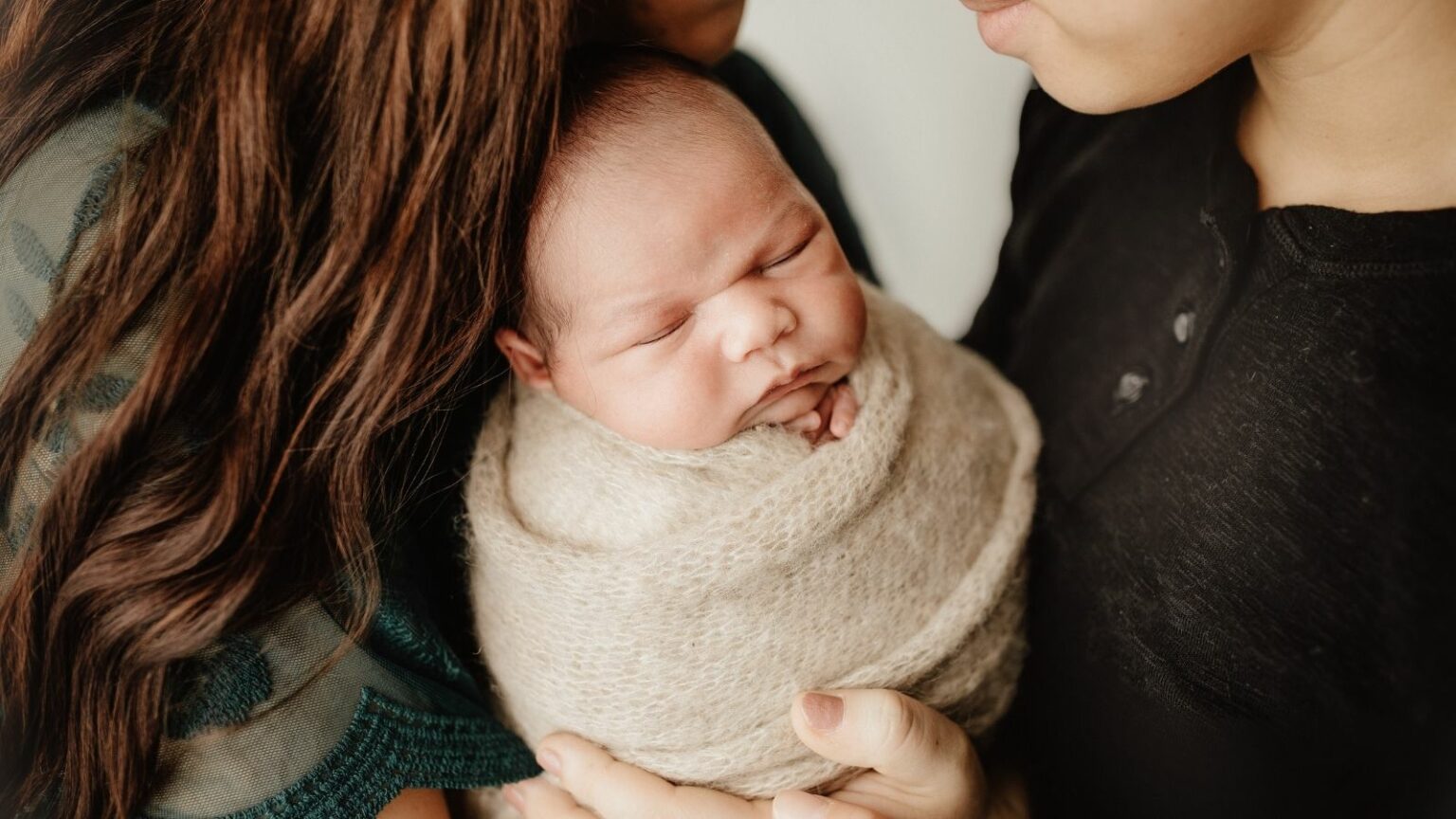
The European Court of Human rights has ruled that the refusing a mother custody of her youngest child on the grounds of her sexual orientation to be discriminatory and a violation of her right to private and family life.
In a judgement released today on the case of X. v Poland, the European Court of Human rights found the refusing a mother custody of her youngest child on the grounds of her sexual orientation as discriminatory and a violation of Article 14 (prohibition of discrimination) in conjunction with Article 8 (right to respect for private and family life) of the applicant.
The case concerned custody arrangements of applicant’s youngest child following her divorce. The main consideration of the courts was that the applicant, the mother of the child, was in a relationship with another woman. She alleged that the courts had acted in her former husband’s favour because of her same-sex relationship.
The Court found that there was “a difference in treatment between the applicant and any other parent wishing to have full custody of his or her child”. Moreover, the Court considered that the discriminatory reference to the importance of a male role model for the boy’s upbringing, which was one of the decisive factors in the dismissal of the applicant’s requests for custody, had outweighed the other arguments: child’s young age, strong bond with the applicant and wellbeing while living with his mother. This reliance on the male role model was discriminatory.
Taking into account that throughout court proceedings, applicant’s sexual orientation and relationship with another woman had been repeatedly referred to as a ground for refusal, the Court concluded that, in “refusing to grant the applicant full parental rights and custody rights in respect of [the youngest child], the domestic authorities made a distinction based solely or decisively on considerations regarding her sexual orientation, a distinction which is not acceptable under the Convention.”
ILGA-Europe had intervened in this case jointly with the International Court of Justice (ICJ), the International Federation for Human Rights (FIDH) and Network of European LGBTIQ* Families (NELFA).
According to Arpi Avetisyan, ILGA-Europe’s Head of Litigation, “Today’s judgment confirms the rights of LGBTI parents to their children on an equal footing as everyone else. The best interests of children to receive parental love and be cared for should prevail in custody considerations, irrespective of parents’ sexual orientation.”
The applicant was awarded EUR 10,000 in respect of non-pecuniary damage.
FIND MORE ABOUT:
Freedom of movement for same-sex spouses: The Coman Case, 3 years on
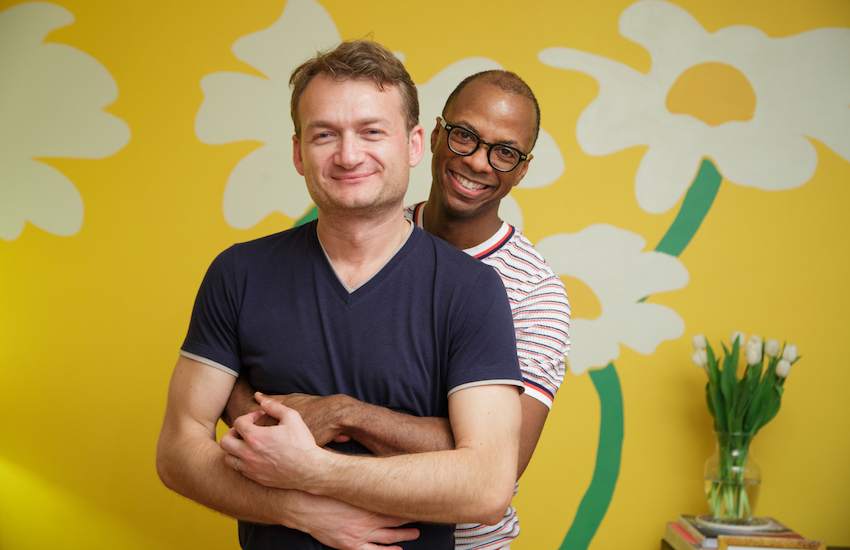
On 5 June 2018, the Court of Justice of the European Union (CJEU) issued a landmark judgement against Romania, recognising that the term spouse includes same-sex spouses under EU freedom of movement laws. Three years later, Clai Hamilton, spouse of Romanian citizen Adrian Coman, has not been granted residency yet. Now they’ve brought the case to the European Court of Human Rights (ECHR). Here, Adrian Coman talks about the original case, and his hopes with this latest development.
When Adrian Coman and Clai Hamilton first met, they did not know that the love they’d found would ultimately change the lives of rainbow families in the European Union. In 2010, while working at the European Parliament in Belgium, Adrian married Clai, a US citizen living in Brussels. Two years later, they decided to move and settle together in Adrian’s home country of Romania.
However, the Romanian authorities chose not to follow EU laws and refused to recognise their marriage, so Clai was not able to apply for a residence permit. Almost a decade on, the situation remains the same.
“I’m sorry to say that change in Romania has always come from abroad,” Adrian Coman told us in an interview for The Frontline, ILGA-Europe’s podcast. It was a decade ago, in 2001, that Romania repealed Article 200, which criminalised homosexual relationships, after receiving pressure from the EU with whom accession talks were taking place. Since then, the one relevant LGBTI related legal change in Romania has been an amendment to the Civil Code, prohibiting same-sex marriages and partnerships, and the recognition of those if they happened abroad.
“What I see is a resistance to change,” says Adrian of his home country. “Some governments think that a majority of Romania is against anything that has to do with LGBT people, therefore resist been seen as operators of change.”
A landmark court case
In 2012 the couple turned to courts to have their marriage recognised for Clai to be able to have residence rights. Six years later, on 5 June 2018, the Court of Justice of the European Union (CJEU) delivered a judgment in favour of Adrian and Clai. It said that the definition of ‘spouse’ in EU law on freedom of movement includes same-sex couples. EU citizens and their families have the right to travel and reside freely within the territory of Member States.
The CJEU’s judgment meant that all EU countries must treat same-sex couples in the same way as different-sex couples when they exercise freedom of movement rights.
“This was a huge achievement,” says Arpi Avetisyan, Head of Litigation at ILGA-Europe. Arpi remembers celebrating when the judgement was published. It was great news for Adrian, Clai and all rainbow families in the EU. There was a sense of happy ending, not only with the case, but also with the positive media exposure it received. Other couples in a similar situation began to tell their stories.
A rollercoaster struggle
However, it’s 2021 and Romania still has not implemented the EU judgment. Adrian and Clai’s marriage has not been recognised in the country and Clai remains unable to apply for residency.
“This case has been like a rollercoaster in a way,” says Arpi Avetisyan. “The struggle continues to ensure the judgment come a reality.”
Now, Adrian and Clai, with the help of ACCEPT , have submitted their case to the European Court of Human Rights (ECHR). “We are very optimistic,” says Adrian about the forthcoming decision. “While we never know how courts will decide, I think all the measures from the higher courts have been favourable. And it’s not surprising because I think the law [in Romania] has not been keeping up with the reality in society. We’ve only seen support and that’s the real change.
“One reason why we’ve stayed in it for so long it’s because we realised it’s no longer about the two of us. Clai and I are very lucky. We live in New York. I happen to be an American citizen at the same time, and we are here, recognised as spouses. We have the choice of not going to Romania now, of waiting… but other people don’t. We recognise the privileges that we have and we have to use them for those who are not in the same situation.”
Watch this space for the European Court of Human Rights decision on Adrian and Clai’s case, and listen to our full podcast below.
Opinion from European court: same-sex parented families should be officially recognised in all EU member states
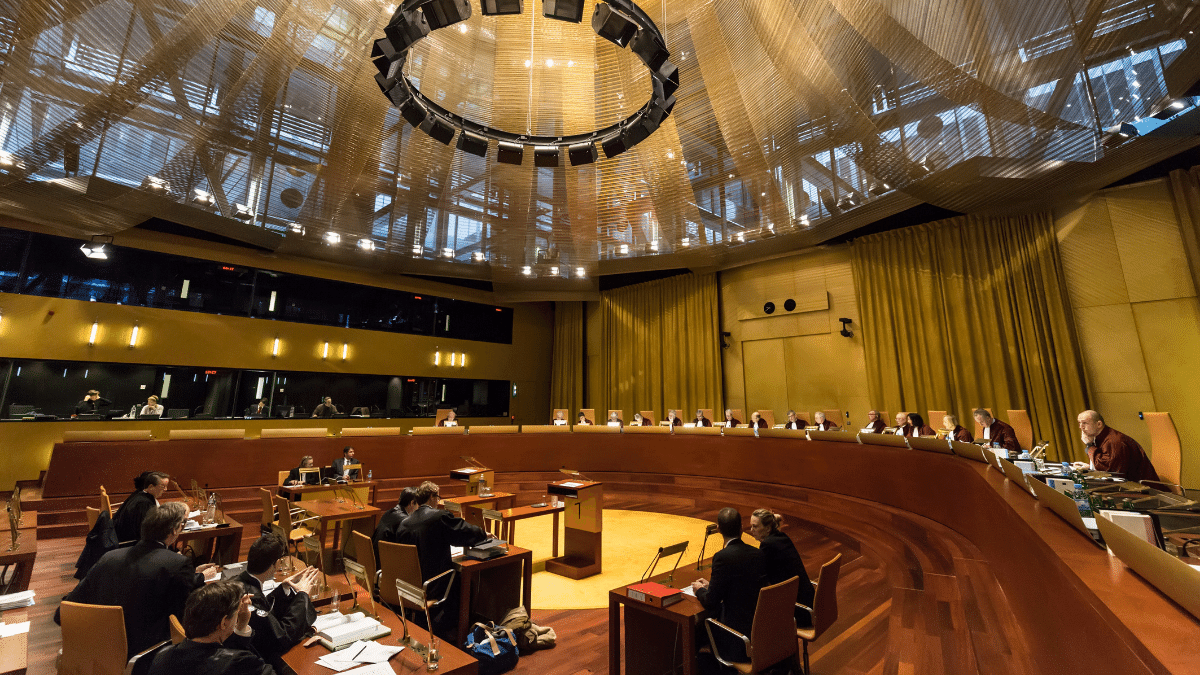
Advocate General of the Court of Justice of the European Union’s opinion says that Bulgaria’s lack of recognition for same-sex parented families cannot justify a violation of EU freedom of movement law
Leading LGBTI rights organisations in Europe are very encouraged by the Advocate General of the Court of Justice of the European Union’s (CJEU) opinion, published yesterday in the case of V.M.A. v Stolichna obshtina, in which a same-sex couple who were refused a birth certificate in Bulgaria for their newborn daughter claim the Bulgarian authorities are violating the rights of a European citizen on the grounds of sexual orientation, namely to free movement, and to private and family life. This constitutes a breach of the fundamental principles of the EU.
The Advocate General (AG) clearly states that the refusal of the Bulgarian authorities to draw up the requested birth certificate constitutes an impediment to the rights which EU law confers on V.M.A. and that child.
According to the AG, the obligation to recognise the family relationships, which are established in Spain, for the sole purpose of applying the EU right to freedom of movement of citizens does not alter the concept of parentage or marriage under Bulgarian family law, and thus does not threaten the fundamental expression of national identity, while removing a significant number of the obstacles to freedom of movement, such as the uncertainties surrounding the right of residence of the child’s British mother or the possibility for that mother to move freely with the child.
Having regard to the limited impact of that obligation on the Bulgarian legal order, the refusal to recognise the parentage of the child as regards V.M.A. and her wife for those purposes goes beyond what is necessary to preserve the objectives relied on by Bulgaria. Bulgaria thus may not refuse to recognise the parentage of the child for the purpose of applying the EU secondary law relating to the free movement of citizens on the ground that Bulgarian law does not provide for either the institution of same-sex marriage or the maternity of the wife of a child’s biological mother if the child is a Bulgarian national.
According to Katrin Hugendubel, Advocacy Director of ILGA-Europe: “The opinion is pointing in the right direction, as it clarifies that parentage established in one member state must be recognised for reasons of freedom of movement across the EU, and all EU citizens and their families equally enjoy freedom of movement. As already confirmed in Romanian Coman case, arguments on “national identity”, namely that Bulgaria does not recognise rainbow families, cannot justify a violation of EU law.”
Eleni Maravelia, President of NELFA, the Network of LGBTIQ* Families Associations, says: “NELFA is very pleased with the opinion of the AG, who is giving a clear answer to Bulgaria and all EU member states that EU law has to be respected at all times when dealing with cross-border issues, even when it comes to rainbow families with children who might not be covered by the national legislation. We are hoping the final decision by the court will take under consideration the AG opinion and build on it so to include the protection of the rights of the child.”
According to attorney, Denitsa Lyubenova, legal representative of the family and member of the Legal Programme of LGBTI Organisation, Deystvie: “We are still awaiting the ruling of the Court of Justice of the European Union, but we believe that the Advocate General’s opinion is a step forward recognising same-sex families across Europe. Law changes slowly, with small steps and a lot of perseverance. A ruling in the direction set by the Advocate General will bind Bulgaria to establish the family relationship between the child Sara and her two mothers. Maybe it all starts now.”
Further information:
- Read more about the case here.
European Court must rule in favour of a child at risk of statelessness and her family’s freedom of movement in the EU, say leading LGBTI rights organisations
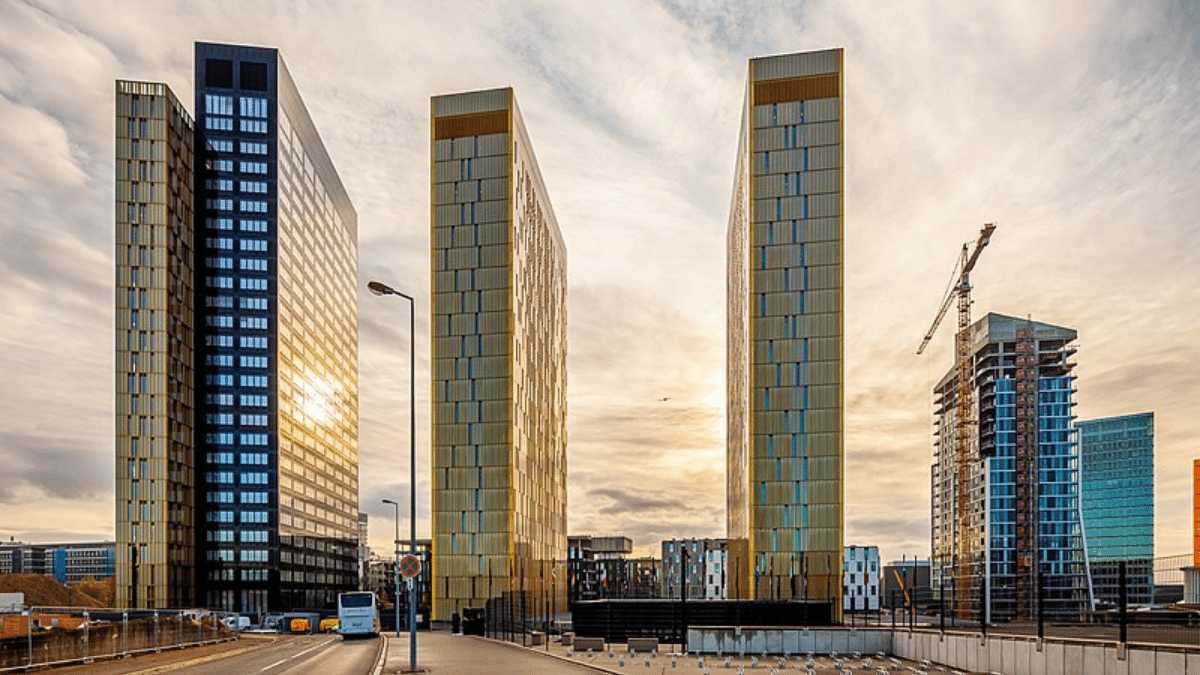
Authorities in Bulgaria have not recognised the valid EU birth certificate of the child of a same-sex couple. On February 9, the Court of Justice of the European Union must clarify that if you are a parent in one EU country, you are a parent in every EU country.
On Tuesday, February 9, the Court of Justice of the European Union (CJEU) will hear the case of a same-sex couple who were refused a birth certificate in Bulgaria for their newborn daughter. The authorities claimed that a same-sex couple cannot be registered as parents on the birth certificate. ILGA-Europe have been supporting Bulgarian LGBTI rights organisation, Deytsvie in bringing the case forward and is, through their campaign #parentswithoutborders, raising awareness of the lack of protection of same-sex parents and their children within the EU.
Bulgarian born Kalina Ivanova* and Gibraltar-born Jane Jones* are the mothers of Sara, who was born in Spain in 2019. Under current Spanish law, the child could not acquire Spanish citizenship because neither Kalina or Jane is a Spanish citizen. The child was also denied British citizenship because Jane was born in Gibraltar of British descent, and under the British Nationality Act (1981), cannot transfer citizenship to her daughter.
Therefore, Kalina requested Bulgarian citizenship for their daughter. Bulgarian authorities rejected the application, arguing that a baby cannot have two mothers, and refused to issue a birth certificate in which the parents are two persons of the same sex.
Sara has been deprived of Bulgarian, and therefore European citizenship, and is at risk of statelessness. At the moment, the child has no personal documents and cannot leave Spain, the country of the family’s habitual residence. The lack of documents will restrict Sara’s access to education, healthcare, and social security.
According to the case taken to the CJEU, the Bulgarian authorities are violating the rights of a European citizen on the grounds of sexual orientation, namely to free movement, and to private and family life. This constitutes a breach of the fundamental principles of the EU.
In Bulgaria, same-sex marriages and same-sex registered partnerships are not recognised.
According to Denitsa Lyubenova, attorney-at-law and co-founder of Deytsvie: “Countries in Central and Eastern Europe are derogating from basic human rights guaranteed by the European Convention on Human Rights and the Charter of the Fundamental Rights of the EU. This weakens the EU position as a guardian of human rights. With this case we have the chance to realign the practice in EU countries with the principles set out in the EU Treaties and to protect the rights of LGBTI families and their children moving across Europe. and the Court needs to reconfirm that Rainbow families are as valid as all others.”
Arpi Avestisyan, Head of Litigations at ILGA-Europe added: “In her State of the Union 2020 address, President Ursula von der Leyen said: ‘If you are parent in one country, you are parent in every country’. However, thousands of same-sex parented families in the EU currently live at risk of not having the parental relations recognised and face legal turmoil due to differences in member states’ national systems.”
Avestisyan continued: “Parents cease to exist when moving from one EU member state to another, where birth certificates from another member state are not recognised. These situations create severe obstacles for children in exercising the rights to which they are entitled under European and international law.
“Through this case, the CJEU has the opportunity to clarify that parentage established in one member state must be recognised across the EU, and all EU citizens and their families equally enjoy freedom of movement. As already confirmed in Romanian Coman case, arguments on “constitutional identity”, namely that Bulgaria does not recognise rainbow families, cannot justify a violation of EU law.”
*Names have been changed.
LGBT families and the Free Movement Directive: Implementation Guidelines

These guidelines provide an introduction to the Directive on the right to free movement, an explanation of those provisions relevant to LGBT families, an overview of the transposition process, and an analysis of the impact of the Directive when applied to LGBT families. They are designed to assist organisations in monitoring national law in order to ensure that LGBT families enjoy the fullest protection in accordance with the Directive.
In 2004, the European Union adopted a new Directive on the right to free movement. This Directive sets out the rules applying to EU citizens and their family members who wish to move to another Member State. This can be for various purposes: to take up a new job, to undertake studies or even for retirement.
It is particularly important for lesbian, gay, bisexual and transgender (LGBT) families who want to exercise their right to free movement. The Directive entered into force on 30 April 2006. All 25 Member States, plus Bulgaria and Romania which joined the Union in 2007, should have taken steps to ensure that domestic immigration laws comply with the Directive.
These guidelines provide an introduction to the Directive, an explanation of those provisions most relevant to LGBT families, an overview of the transposition process, and an analysis of the impact of the Directive when applied to LGBT families. They are designed to assist organisations in monitoring national law in order to ensure that LGBT families enjoy the fullest protection in accordance with the Directive.
Guidelines Free Movement Directive
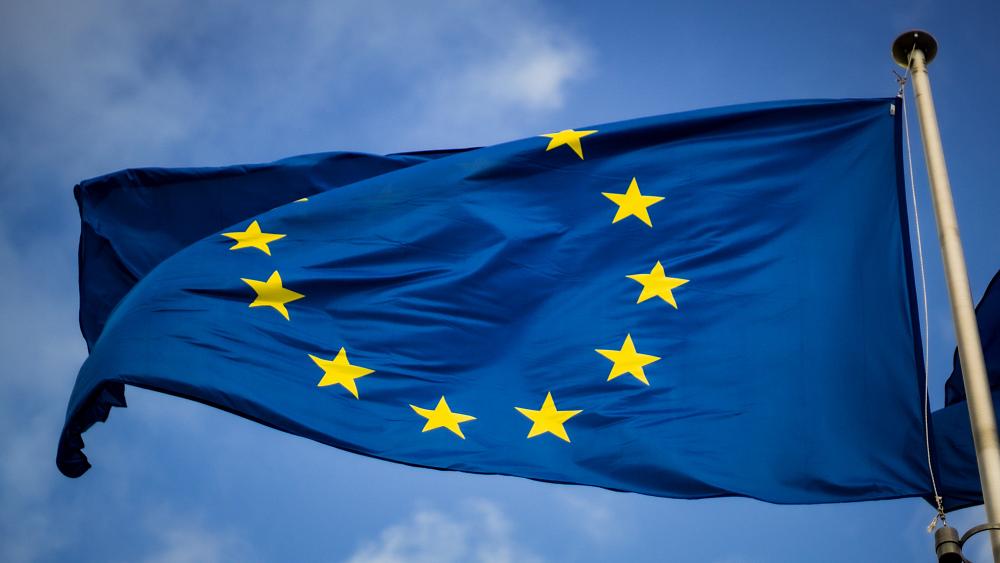
The goal of these guidelines is twofold. First, the guidelines are meant to assist organisations in monitoring national law in order to ensure that same-sex families enjoy the fullest protection in accordance with the Directive. Second, this document discusses how the provisions of the Directive can and should be applied to further advance the free movement rights of same-sex families.
In 2004, the European Union adopted a new Directive on Free Movement Rights which has relevance for same-sex families who want to exercise their right to free movement. The Directive sets out the rules applying to EU citizens and their family members who wish to move to and reside in another EU member state. While falling short of respecting the right to free movement for all families, the Directive opens the door for some recognition of same-sex families.